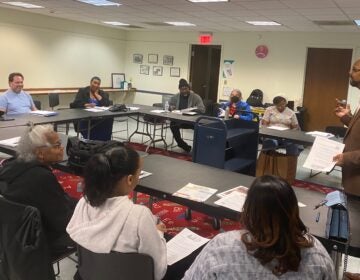The hottest ticket on the Hill: Race to Nowhere
After Jackie Yorko of the Presbyterian Church of Chestnut Hill agreed to screen a film about stress and the modern high school student, it didn’t take long before she realized she’d struck a nerve. At ten dollars a head, “Race to Nowhere” quickly filled all 200 available seats.
“There’s been a lot of interest,” said Yorko, director of the church’s Center on the Hill, which will present the film this Friday. “If we opened up to 300, I bet we’d sell out.”
The documentary
Released in 2009, “Race to Nowhere” argues that the pressure put on college-bound students to fatten their transcripts with AP credits and extracurricular activities is counterproductive at best, and unhealthy at worst. First-time director Vicki Abeles of California was inspired to make the film after seeing her 12-year-old daughter suffer anxiety attacks that Abeles believes were triggered by daily immersion in a high-stakes academic rat race.
“After months of long evenings battling homework assignments, studying for tests and panic attacks in the middle of the night, we found her doubled over in pain,” writes Abeles on the film’s website. “Her cheerful façade and determination to keep up had masked her symptoms.”
“Race to Nowhere” uses interviews with students, teachers, academics and admissions experts to argue that Abeles’ experience reflects a national trend. “Our courses are designed to create multi-taskers who can read as much material as efficiently as possible, just so they can regurgitate it on the next exam,” says Jay Chugh, a high school biology teacher from Lafayette, CA, in one scene. “I feel like I’m doing a disservice to the students, because I’m sacrificing quality of content for quantity.”
Why Chestnut Hill
Chestnut Hill resident Page Pendse, a former teacher in the Wissahickon School District, organized the screening . She believes that many American students now face a worst-case scenario: a system that is both highly stressful and not particularly effective.
“People are confused,” said Pendse, now pursuing a doctorate in education at the University of Pennsylvania. “Our educational system is not producing the quality that we want, and yet we have this high anxiety among our students. So we need to start asking questions …. What we’re doing now is not working.”
And while much of “Race” considers the problems faced by high-achieving, college-bound students, Pendse believes the trend towards test-based evaluations, such as those mandated by the No Child Left Behind law, affects teachers and students at every level.
“Having standards is a positive thing in education,” said Pendse, who hopes the screening will be the first of many education-themed evenings at the Center on the Hill. “When I began teaching [in 1999], we had standards, national, state and local , that we were supposed to adhere to. But when NCLB came in, it was a totally different feeling in the classroom – it was much more about how we were going to master this test. And teaching to a test is different from having high standards.
“Things really changed in the classroom,” said Pendse. “There was much less project-based learning, and much more focus on the transmission of discrete information and facts.”
Reviews
While “Race” has not earned the wide attention (or the commercial distribution) of the popular “Waiting for Superman,” it has earned positive reviews for its focus on the modern student experience. The Los Angeles Times called it “a dire warning and solid piece of advocacy journalism.” In a review for the Huffington Post, John Merrow of PBS Newshour wrote, “In my 35 years of reporting for NPR and PBS, I have covered these issues more times than I care to remember …. I promise you that this movie is telling the truth.”
Meanwhile, those who didn’t snap up a ticket to this week’s screening will have another chance: “Race to Nowhere” will be shown at Germantown Friends School in Germantown on February 24th. The event will be open to the public; contact the school for details.
WHYY is your source for fact-based, in-depth journalism and information. As a nonprofit organization, we rely on financial support from readers like you. Please give today.




